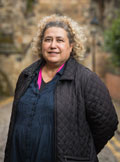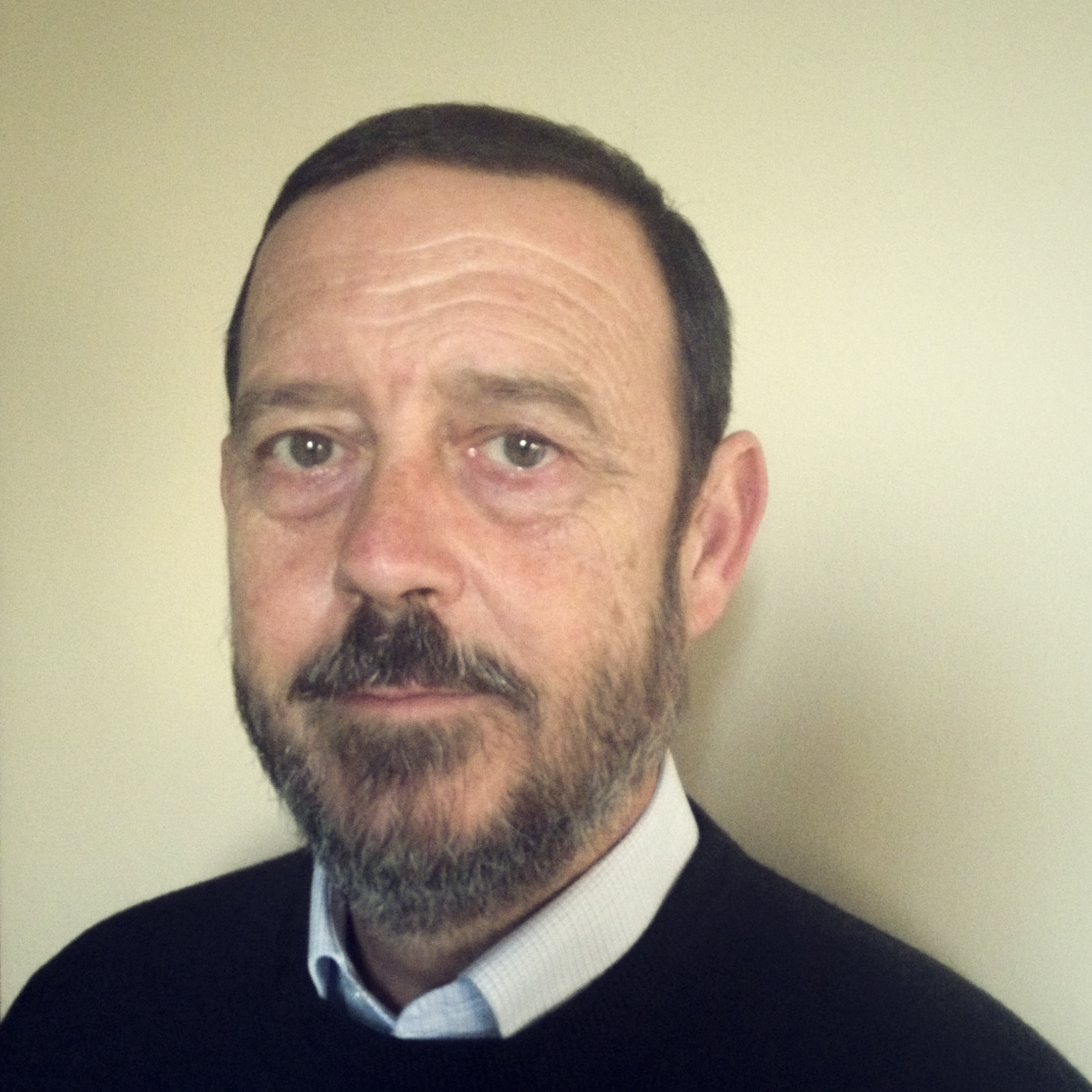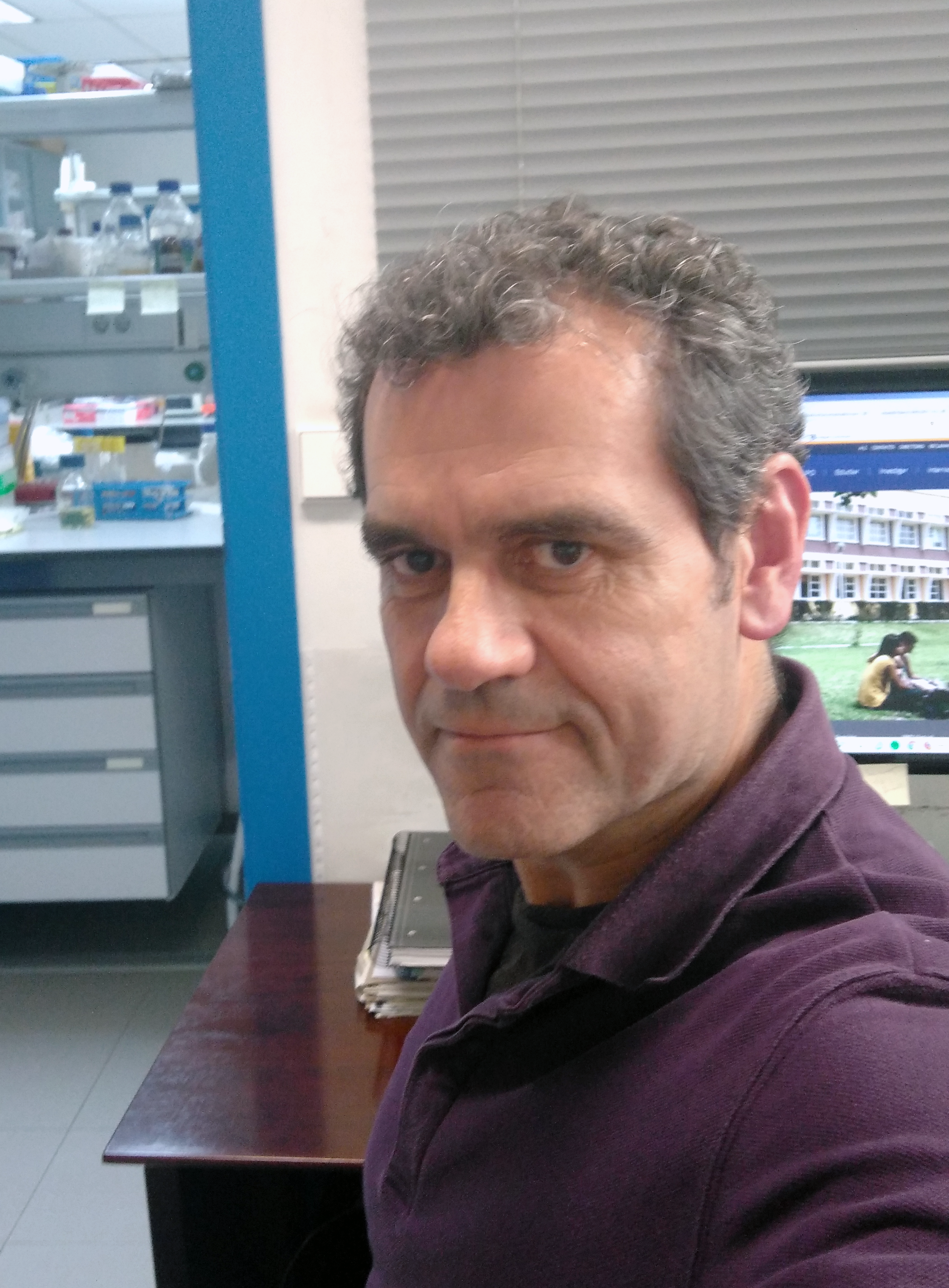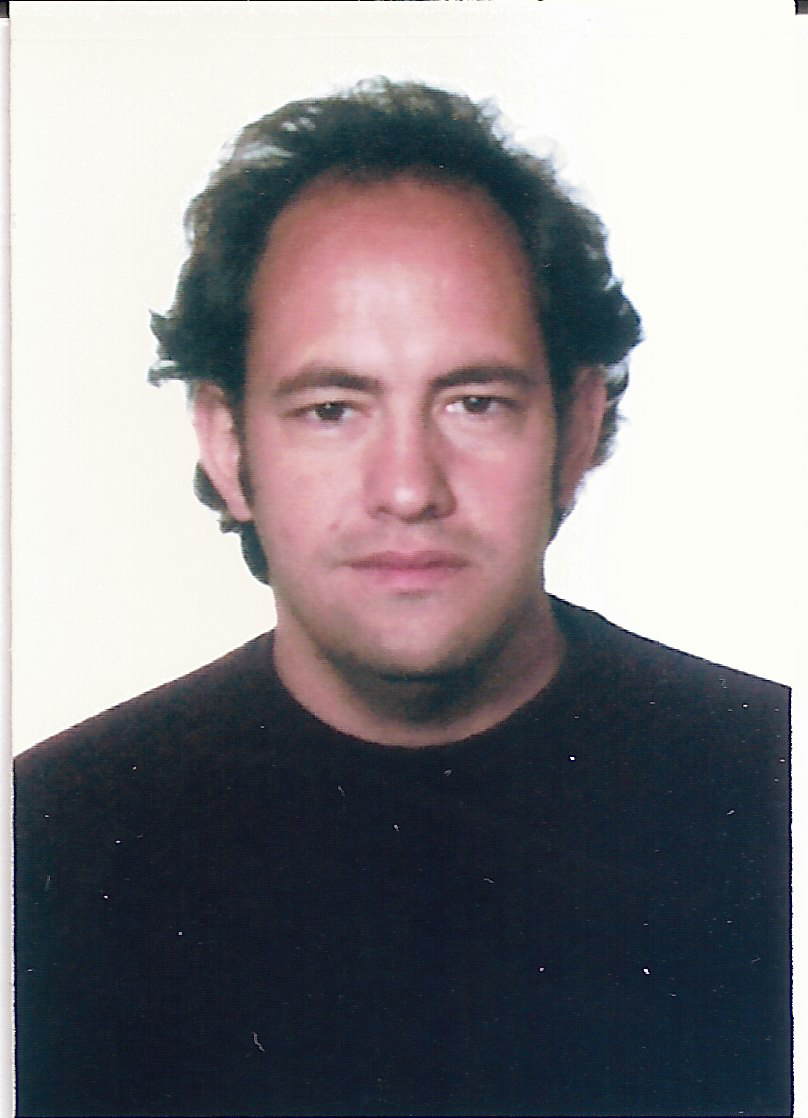Senior Lecturer (VC2020) in Biomedical & Medical Sciences
Faculty of Health and Life Sciences, De Montfort University, UK
Contact Details
Email: antonio.pena-fernandez@dmu.ac.uk
Institutional profile: www.dmu.ac.uk/antoniopenafernandez
Research profile: https://www.researchgate.net/profile/Antonio_Pena-Fernandez
Personal profile:
Dr Antonio Peña-Fernández is a Senior Lecturer (VC2020) in Biomedical & Medical Sciences in the School of Allied Health Sciences at De Montfort University, Leicester, UK. He has a BSc in Chemistry from the University of San Pablo CEU, Spain (2000), a MSc in Toxicology from the University of Sevilla, Spain (2006), and a PhD in Physiology and Toxicology from the University of Alcalá (2011). Antonio’s interests include parasitology, toxicology, and environmental and public health.
Dr Peña-Fernández is also a Senior Fellow of the HEA (SFHEA) and he is involved in pedagogic research, e-learning development and curriculum design. Antonio is the project lead of the DMU eParasitology.
His research work focused in studying the prevalence of emerging human parasites in urban environments in Leicester (UK) and in Alcalá de Henares, Madrid (Spain) and the risks for humans that these may have. The characterisation of risks passes through identifying the presence and distribution of different parasites in these two cities for establishing protocols and interventions to prevent transmission to protect public health.
Antonio is also working in human biomonitoring as a tool for the assessment of internal doses of contaminants, particularly metals and metalloids, and the study of these compounds in urban and industrial environments for the characterisation of risks and the development of protocols to protect the human health.
Units developed:
Antonio is the project lead and has participated in the development of the following units:
Theoretical section:
Practical section:

Job: Senior Lecturer in Microbiology and Quality Management/ Programme Leader Biomedical Science degree programme
Faculty: Health and Life Sciences
School/department: Leicester School of Pharmacy
Address: De Montfort University, The Gateway, Leicester, LE1 9BH.
T: +44 (0)116 257 7677

Full Professor of Microbiology Faculty of Experimental Sciences, Pablo de Olavide University, SPAIN
Contact Details
Email: esansan@upo.es
Research profile: http://www.cabd.es/en-research_groups-20-82-gene-expression-in-bacteria-of-environmental-interest-summary.html
Personal profile:
Prof. Eduardo Santero is full Professor of Microbiology at Pablo de Olavide University, Seville, Spain, since 2003 and the current lead of the Microbiology Area at POU. He has a BSc in Biology (1980), a PhD in Molecular Biology from the University of Seville (1986) and was a postdoc at the University of California at Berkeley (1988-1990).
Eduardo’s research interests include physiology and molecular biology of environmental bacteria and public health. He has published more than 80 works, most of them original research articles published in first-rank general journals such as PNAS, Cell, EMBO J, Nature Methods or Scientific Reports, and in more specialized journals such as Environmental Microbiology, Molecular Microbiology, Frontiers in Microbiology, Journal of Molecular Biology, Journal of Biological Chemistry, Journal of Bacteriology, Applied and Environmental Microbiology, Microbial Biotechnology, among others, and he is frequent reviewer of these journals. He supervised more than 20 PhD Thesis.
He has significantly contributed to the understanding of the molecular mechanism of transcriptional activation at a distance from sigma54-dependent promoters in different systems and the gene regulation of organic contaminants biodegradation pathways. He has applied his experience in gene regulation mechanisms in a new research line on metagenomics to devise genes expression systems that facilitate environmental genes expression, in order to increase the potential of functional screenings. This metagenomic approach has allowed recent discovery of new genes coding for antibiotic resistance from unknow environmental bacteria that are being characterised.
He is FEMS member and has been Vice-President for Research at Pablo de Olavide University (2003-2007), Deputy Director of the Andalusian Center for Developmental Biology (2007-2011) and Director of the Andalusian Center for Developmental Biology (2001-2015).
Units developed:
Eduardo has participated in the development of the following units:
Pathogen Units:

Lecturer in Microbiology, Faculty of Experimental Sciences, Pablo de Olavide University, SPAIN
Contact Details
Email: aflodia@upo.es
Research profile: Researcher ID K-9839-2014
Personal profile:
Dr. Amando Flores has a BSc in Biology (1989) and a PhD in Molecular Biology from the University of Seville (1994). He was a postdoc at CNRS and CEA in France (1995-99) and a lecturer at the University of Malaga, Spain (1999-2005), where he worked on bacterial gene expression and yeast transcription and cell cycle. In 2005, he joined the research group led by Dr. Santero at the Andalusian Center for Development Biology (CABD) of the Pablo de Olavide University, where he is a lecturer in Microbiology. In this group, he has participated in different research projects in the field of biomedical and environmental microbiology.
Currently, his research work focus in studying bacterial mechanisms of resistance to antibiotics administered in hospitals and identification of new antimicrobials compounds by functional metagenomic approaches. Amando is also working in the isolation of drug-degrading microorganims and characterisation of the biodegradation pathways.
Currently, he is interested in bacterial pathogenesis he has participated in several national and European research projects focused on biomedical or environmental applications. His research interests include prokaryotic regulation of gene expression, bacterial pathogenesis, metagenomic functional analyses and bacterial metabolism. She is currently working in three different lines of research: Identification and characterization of mechanisms of resistance to antibiotics and combination of antibiotics administered in hospitals to efficiently design strategies to combat them. Identification of new antimicrobials against multidrug resistan bacteria Isolation and characterization of drug-degrading microorganisms from environmental samples; (ii) molecular characterisation of the mechanisms of resistance to efficiently design strategies to combat them; and (iii) identification of new drugs to fight against the multidrug resistant bacteria, such as new antimicrobials and new antibiotics adjuvants.
Units developed:
Amando Flores has participated in the development of the following units:
Pathogen Units:

...
Lecturer in Microbiology, Faculty of Experimental Sciences, Pablo de Olavide University, SPAIN
Contact Details
Email: cmedmor@upo.es
Research profile: Researcher ID L-1773-2014
Personal profile:
Dr. Carlos Medina has a BSc in Biology (1998) and developed his PhD during years 1998-2004 in the department of Microbiology of the University of Seville in the subject-matter of Biological Nitrogen Fixation (BNF). He joined the group of Eduardo Santero in 2006 at the Andalusian Center for Development Biology (CABD) of the Pablo de Olvide University and he has participated in distinct research projects publishing significant contributions on high impact journals. He has recently edited a book for Springer focused on host–pathogen interaction, based on his experience of the field.
He is particularly interested in regulation of gene expression in bacteria, symbiotic and pathogenic bacterial relationships, metagenomic functional analyses and bacterial metabolism. He is involved in different research projects as the expression of bacterial effector proteins to provoke cytotoxic effects on eukaryotic cells and the interaction between rhizobacteria and legumes to improve nitrogen fixation in collaboration with the Microbiology department of the University of Seville.
Units developed:
Carlos Medina has participated in the development of the following units:
Pathogen Units:

Lecturer in Immunology
Faculty of Pharmacy, San Pablo CEU University, Spain
Contact Details
Email: carolina.hurtadomarcos@ceu.es
Institutional profile: http://www.uspceu.com/es/general/directorio/index.php
Personal profile:
Dr Carolina Hurtado Marcos is a lecturer in Immunology at San Pablo CEU University in Madrid, Spain. She has a BSc in Pharmacy by this university (2001) and a PhD in Molecular Biology by Universidad Autónoma de Madrid, Spain (2007) carried out in immunology and virology gaining wide experience in biotechnology diagnostic techniques, particularly in the fields of molecular genetics, cell cultures and viral infections. In recent years she has developed her research in the National Center of Microbiology, CNM, (Instituto de Salud Carlos III) collaborating in the design and construction of chimeric antigens for the development of vaccines for control of fascioliasis and in the development of diagnostic techniques and immunogenic proteins in search of taeniasis within a Network of Tropical Diseases Research. She is currently developing her research in the School of Pharmacy of USP-CEU on the modulation of the immune system in infection by parasites that induce autoimmune diseases and cancer.
Carolina is a lecturer in Immunology since 2010 teaching Immnunology, Immunotherapy and Cell Culture Techniques to different students from Pharmacy, Biotechnology, Medicine and Dentistry Degrades.
Units developed:
Carolina has participated in the development of the following units:
Practical section:

lacosta@umh.es
f.bornay@umh.es
Lecturer in Preventative Medicine & Public Health
Universidad Miguel Hernández de Elche, Alicante, Spain
Contact Details
Email: lparker@umh.es
Telephone: +34 965 919 516
Institutional profile: http://episaludpublicayglobal.umh.es/miembros/parker-lucy-anne/
Research profile: https://orcid.org/0000-0002-2362-4057
Personal profile:
Lucy studied Immunology at the University of Glasgow in Scotland, has a Masters in Public Health from Miguel Hernández University in Alicante, and was awarded a European PhD in Public Health from the same University in 2011, for which she spent 3 months at the World Health Organization in Geneva, at the Secretariat of the Framework Convention on Tobacco Control.
She has varied international field experience, having worked on numerous projects with Medecins sans Frontieres, such as carrying out operational research on HIV/AIDS in Swaziland, working on childhood malnutrition in Niger, or carrying out medico-humanitarian surveillance and rapid response in the Democratic Republic of Congo. She has been involved in numerous emergency epidemic response teams including Ebola in Liberia in 2014, and Cholera in South Sudan in 2015 and 2016.
She is currently working as a Lecturer at the Department of Public Health, History of Science and Gynecology at Miguel Hernández University where she also coordinates the Masters Programme in Development Cooperation.
She is a guest lecturer in the Masters in Public Health and Communicable Diseases of the National University of Misiones, Posadas, Argentina; and in the Master of Global Health at Bercelona Global Health Institute, University of Barcelona. Current research interests include implementation science, specifically exploring how to improve implementation of public health recommendations to prevent non-communicable diseases in resource-limited settings.
Lines of Research:
Social determinants of health
Epidemiological methodology in low-resource settings
Implementation science
Units developed:
Theoretical section:
Researcher. CIBER of Epidemiology & Public Health
Faculty of Medicine, Universidad Miguel Hernández de Elche, Spain
Contact Details
Email: echilet@umh.es
Institutional profile: http://episaludpublicayglobal.umh.es/miembros/chilet-rosell-elisa/
Research profile: https://orcid.org/0000-0002-9091-7255
Personal profile:
Dr Elisa Chilet-Rosell is a Researcher in Public Health in the CIBERESP-Universidad Miguel Hernández de Elche (Spain). She has a BSc in Biology (2004) and a MSc in Human Tropical Parasitic Diseases (2005) from the University of Valencia, and a PhD in Public Health from the University of Alicante (2012). Her thesis has international mention and Extraordinary Doctorate Award. Her article "Inequality in analgesic prescription in Spain. A gender development issue ", which forms part of her thesis, was recognized as the best article published in the Gaceta Sanitaria in 2013 at the XXXII Meeting of the Spanish Society of Epidemiology.
Since 2005, she has developed different research projects and training activities in the Public Health field, particularly from a gender perspective, with funding from the Observatory of Women's Health, the Health Research Fund of the Carlos III Institute, the Women's Institute of Ministry of Health, Spanish Committee of People with Disability from Spain; the Secretary of Education, Science and Technology of Ecuador and the World Health Organization. In December 2016, she joined the research group of Clinical Epidemiology, Health Policies and Global Health of the Miguel Hernández University of Elche as a researcher of the CIBER of Epidemiology and Public Health, with the aim of incorporating the gender perspective in the projects of the group's research.
Units developed:
Theoretical section:
...